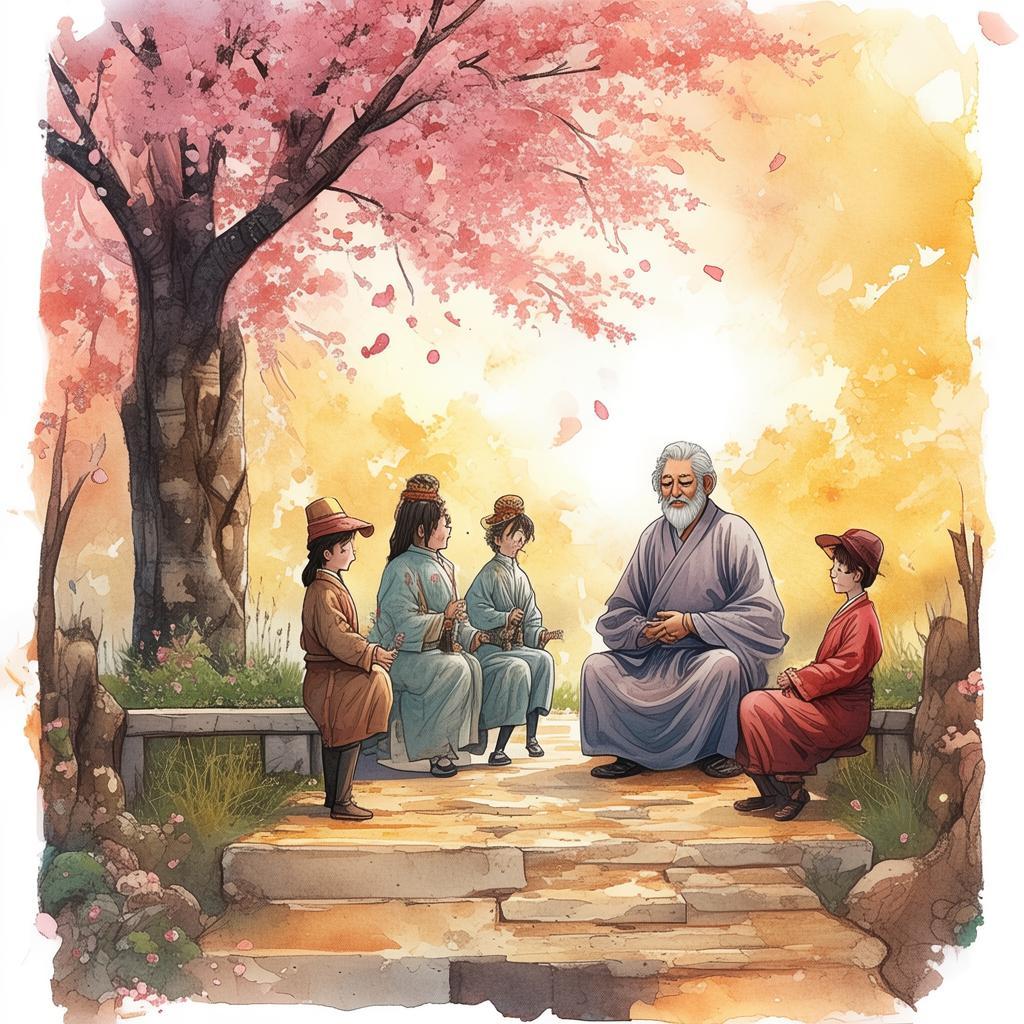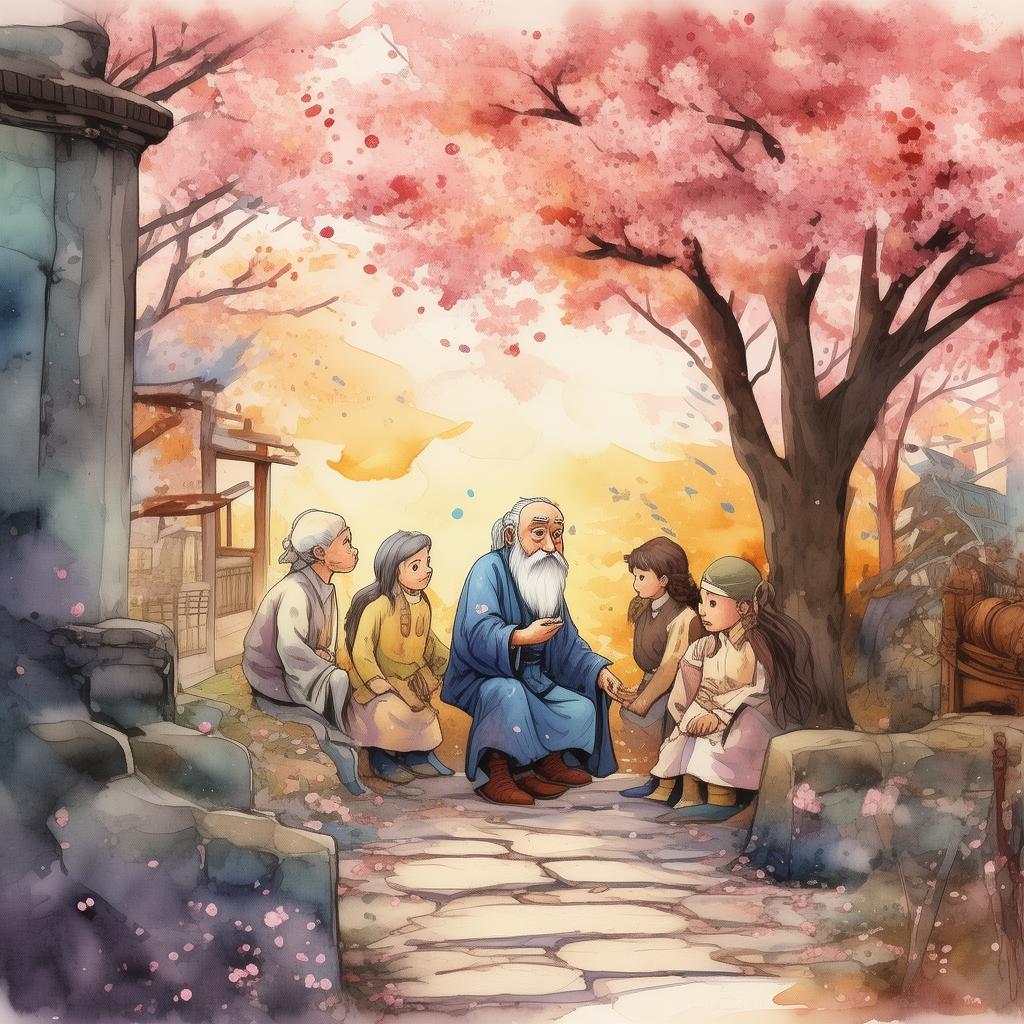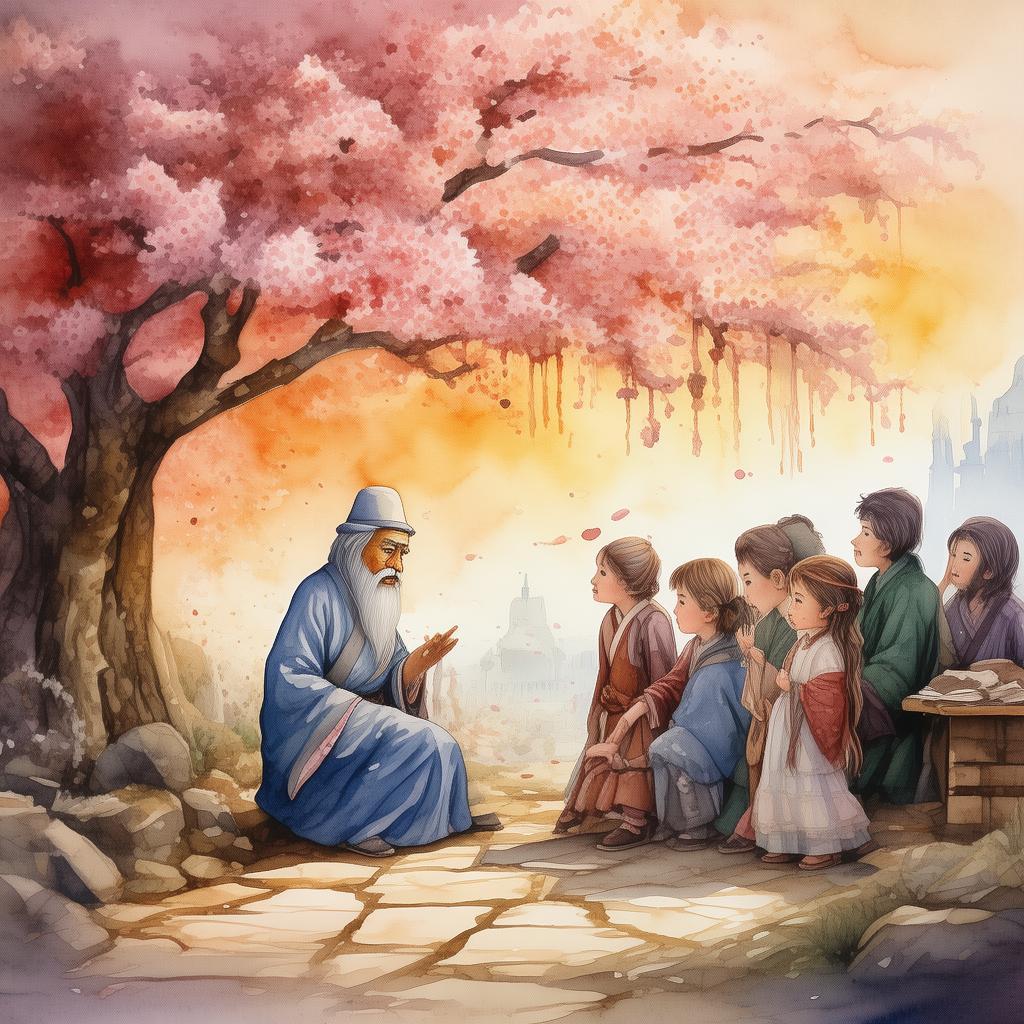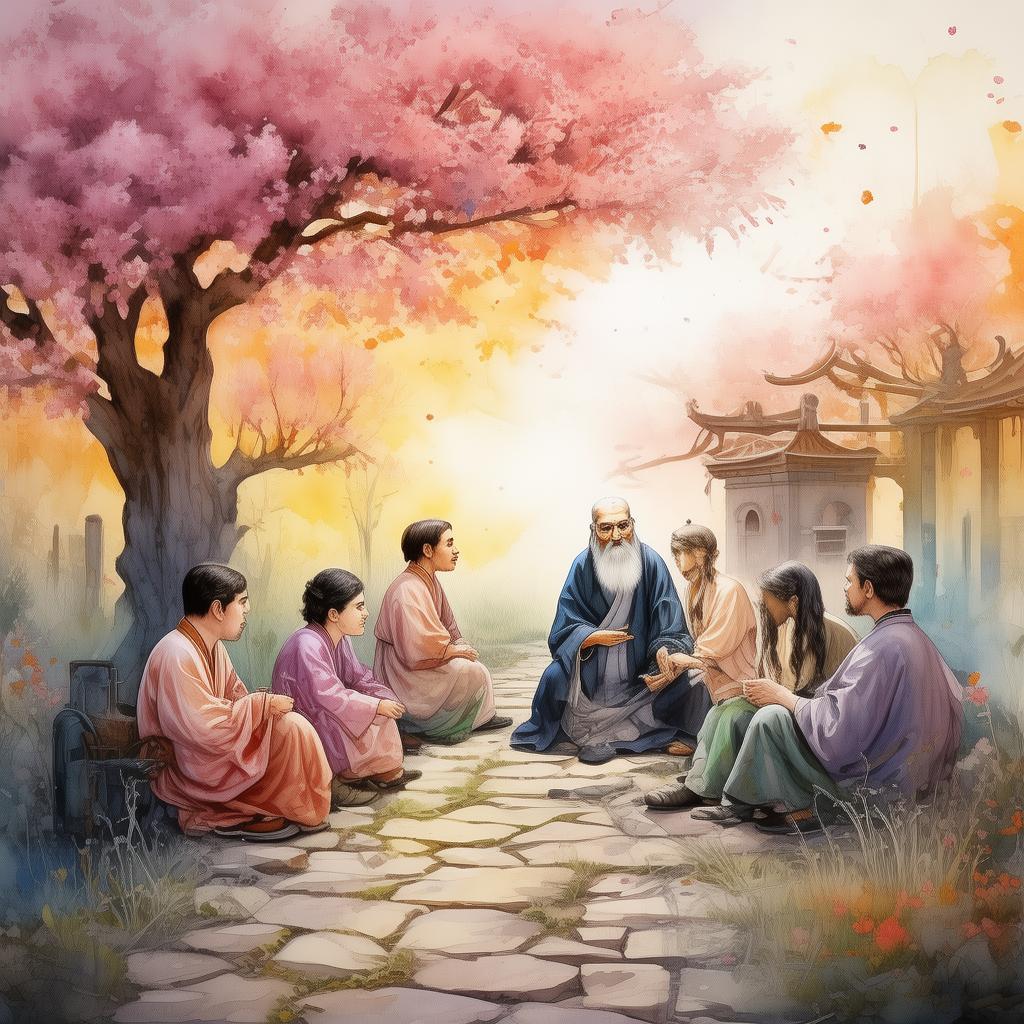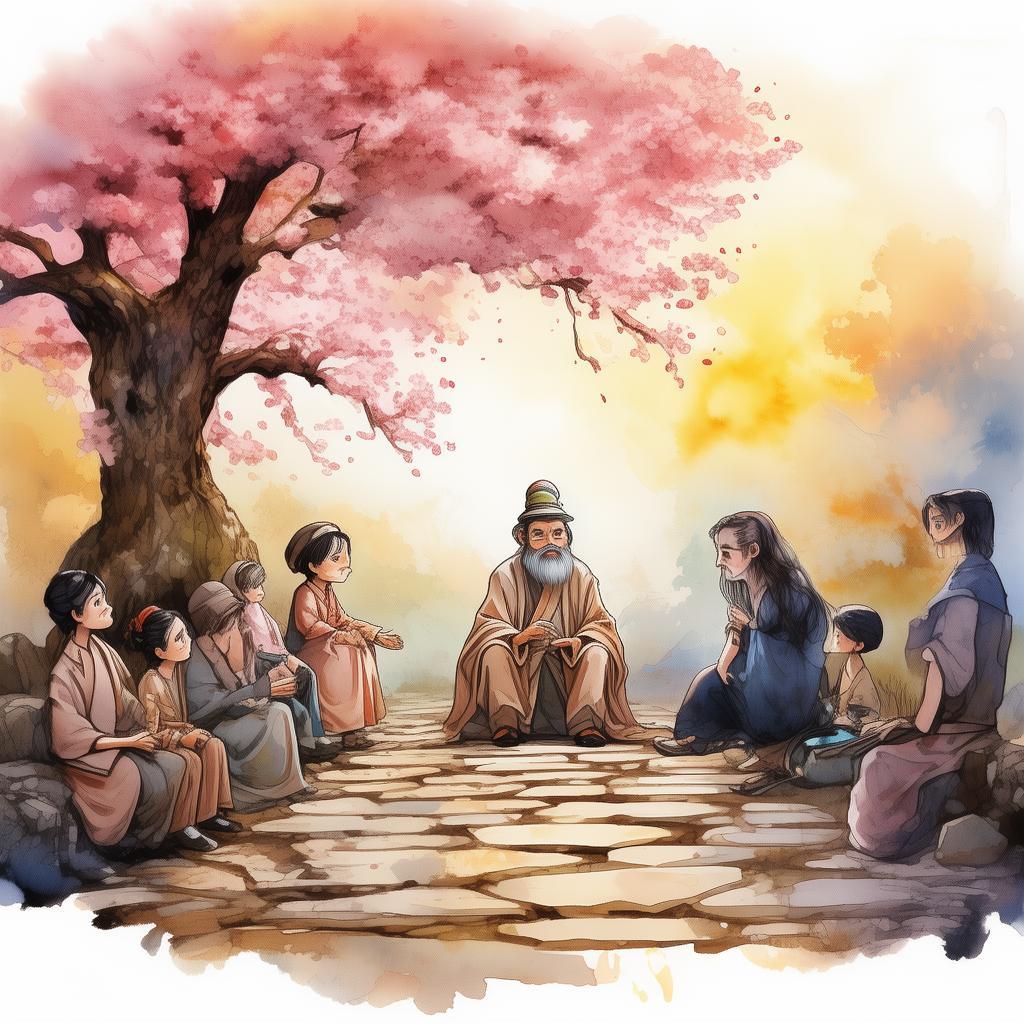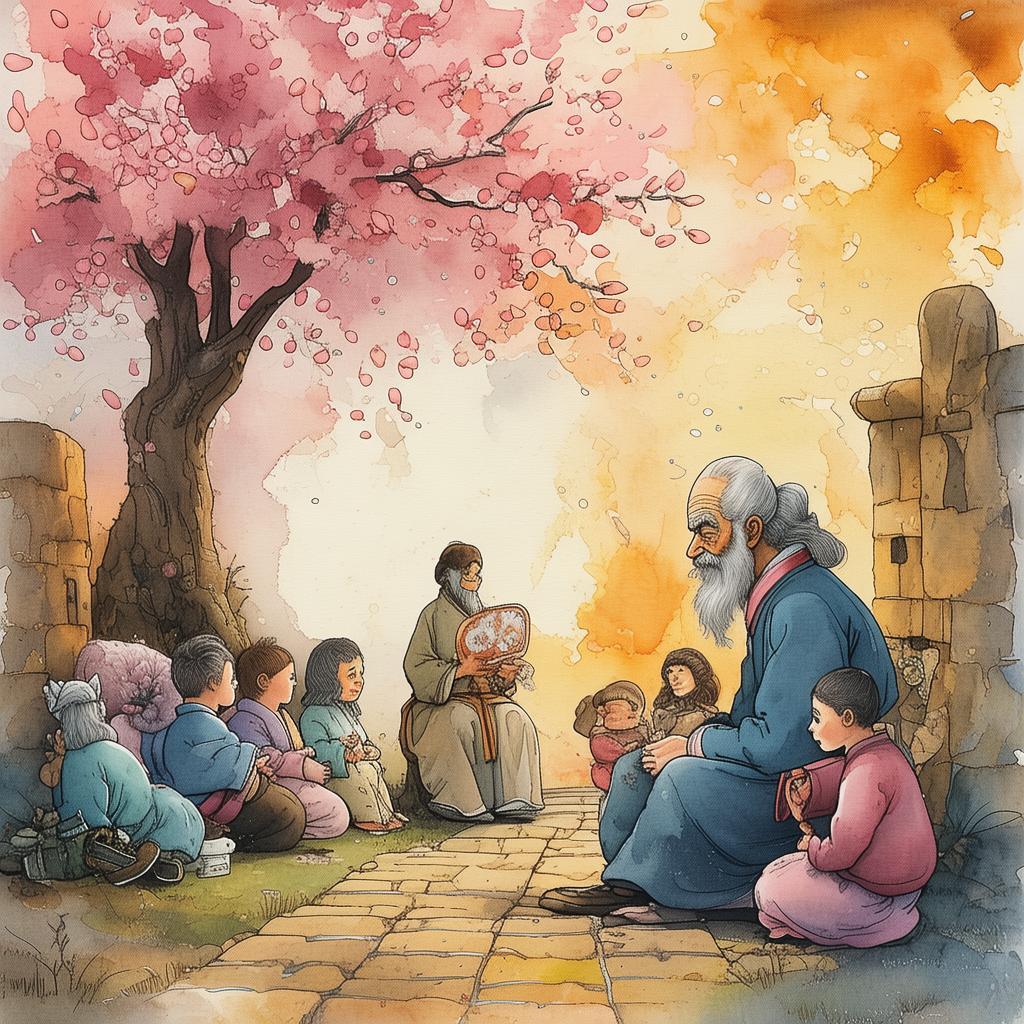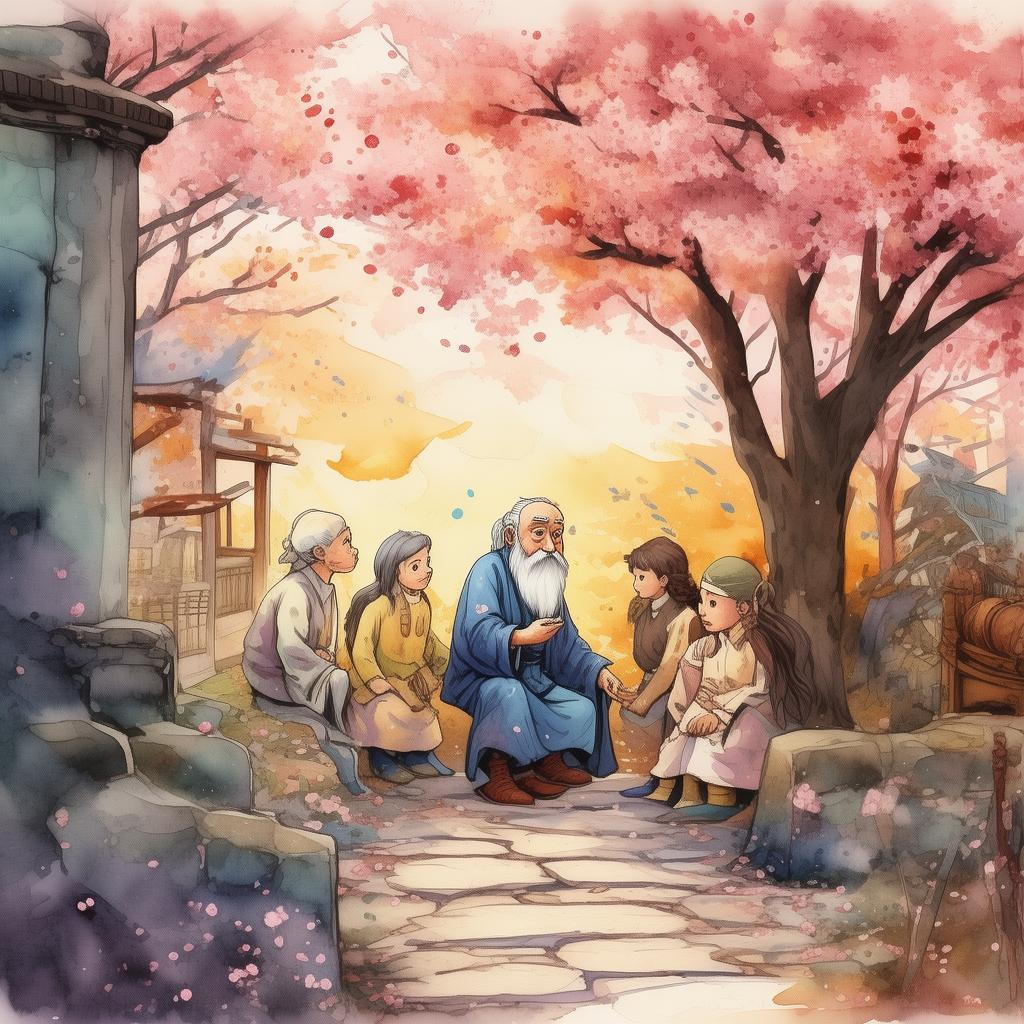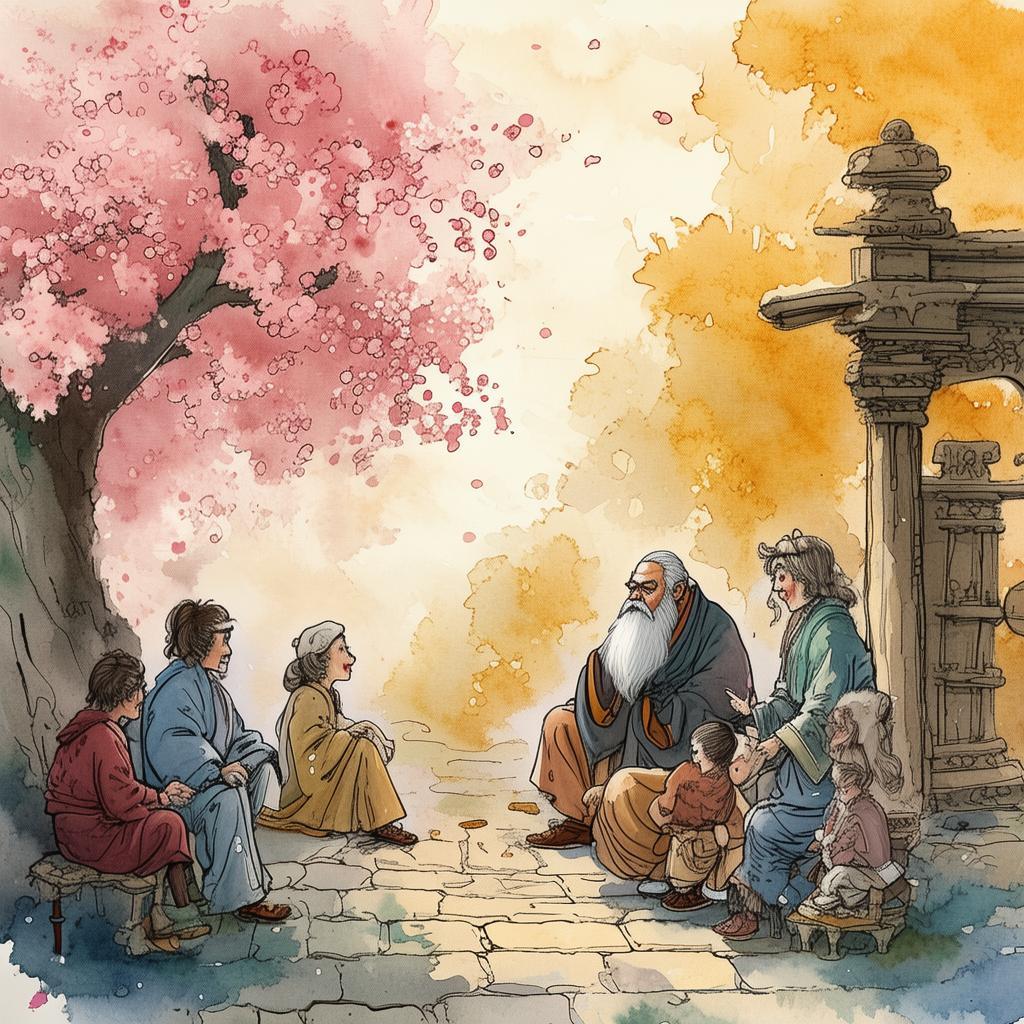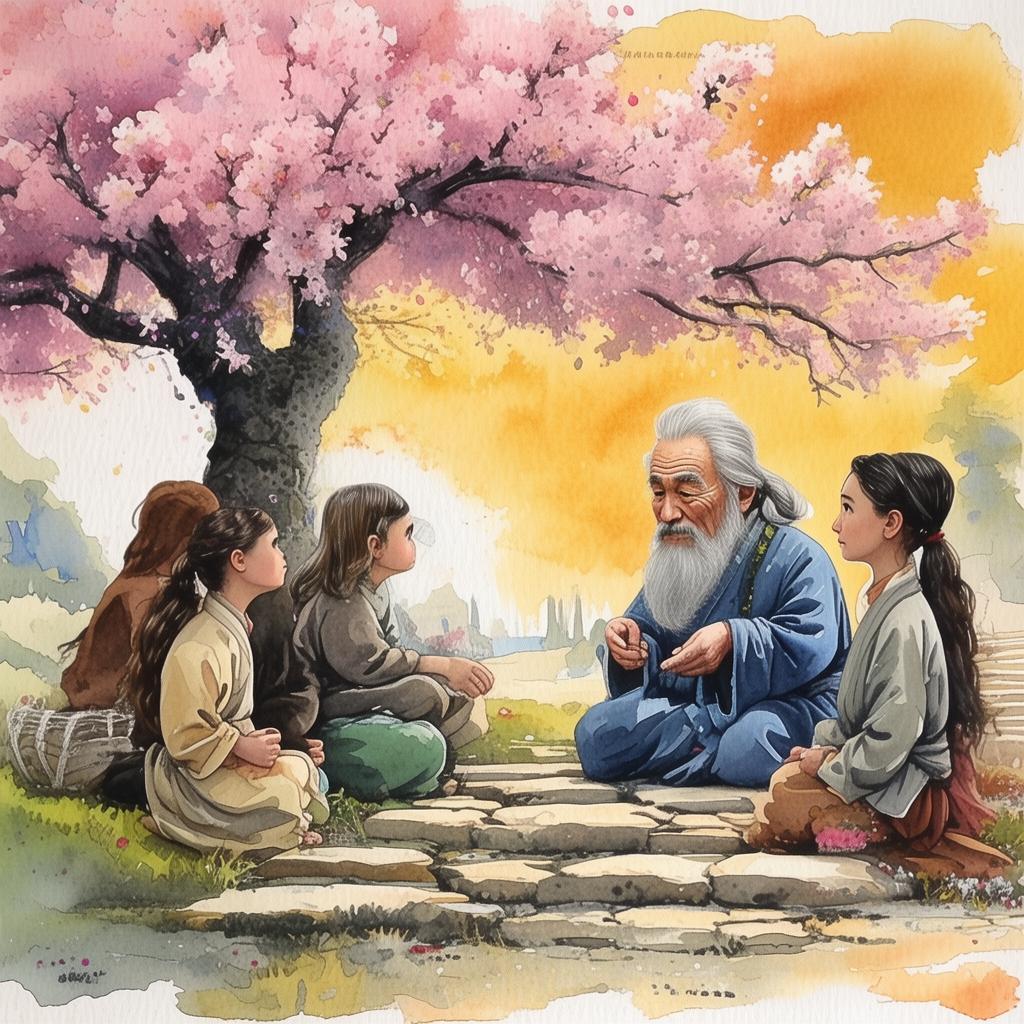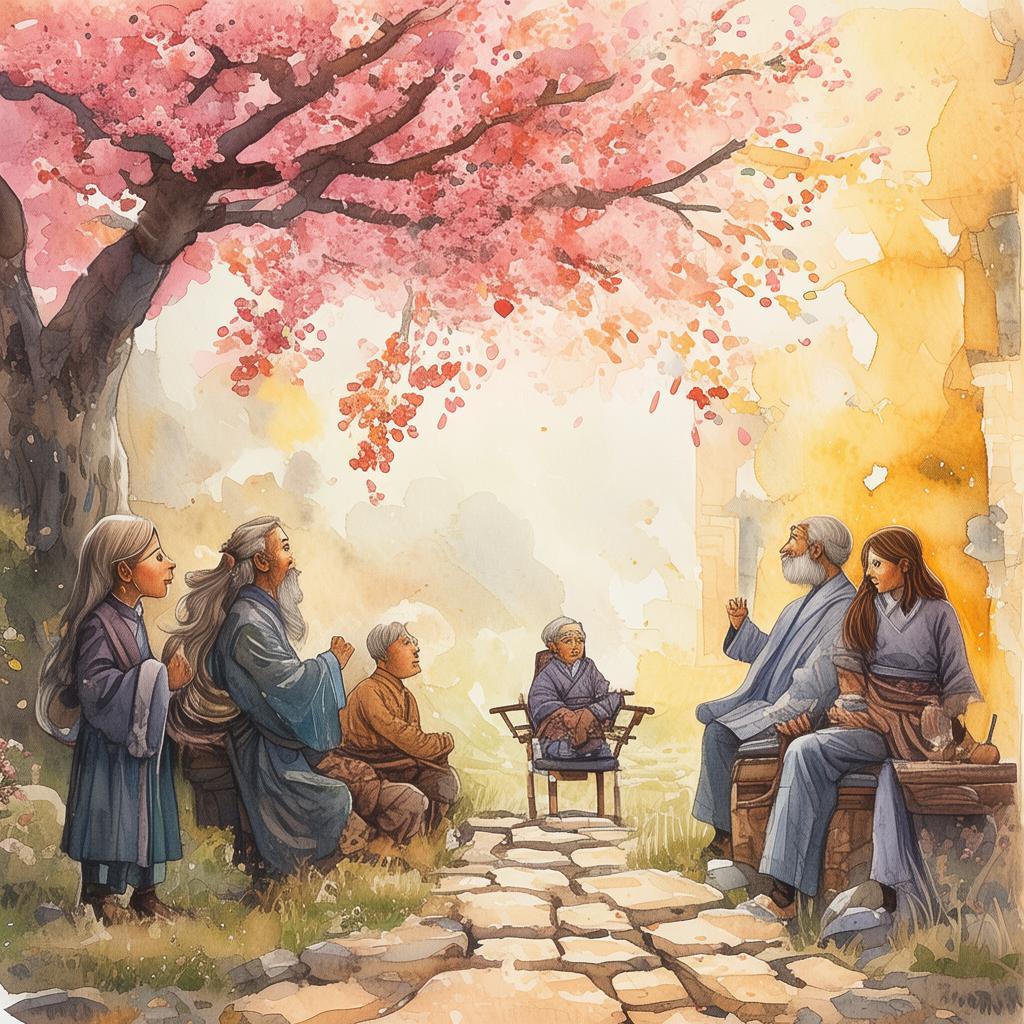The Melody of Betrayal: A Weaver's Harmony
In the ancient town of Liyun, nestled between the whispering mountains and the murmuring rivers, there lived a weaver named Qing. His hands, nimble and deft, wove tales of the past into the fabric of his creations. His most prized work was a tapestry called "The Weaver's Harmony," a testament to the enduring dreams of his ancestors, woven with threads of silver, gold, and the rarest silk.
The story of Qing's tapestry began with a melody, a haunting tune that played on the wind and through the trees. It was the song of his mother, a woman whose love for music was as deep as the rivers of Liyun. Her melodies were the foundation of Qing's art, the heartbeat of his soul. But when she died, the melody faded, leaving Qing bereft and alone.
As the years passed, Qing's tapestry grew, a patchwork of dreams and memories, a reflection of his mother's spirit. He called it "The Weaver's Harmony," a harmonious blend of her music and his craft. It was said that those who viewed the tapestry could hear the melodies of their own pasts, a promise of enduring dreams.
One day, a mysterious figure appeared at Qing's doorstep, a traveler with eyes that held the weight of a thousand secrets. He spoke of a music that could heal the deepest wounds and bind the hearts of the lost. Intrigued, Qing offered the traveler a place to stay, and in return, the traveler taught Qing a new kind of music, one that was both ancient and new.
The traveler's music was unlike anything Qing had ever heard. It was a symphony of life and death, of love and loss, woven into a tapestry of sound that resonated with the very essence of existence. Under the traveler's guidance, Qing's tapestry transformed, becoming a living, breathing entity that could move and sing.
As the days turned into weeks, Qing's tapestry grew more intricate, the music it produced more powerful. It was said that the tapestry could heal the sick, soothe the troubled, and even summon the spirits of the departed. The traveler, whose name was never shared, watched in awe as Qing's creation took on a life of its own.
But the music of the tapestry had a cost. It bound Qing to a destiny he never imagined, a destiny that would test the very fibers of his being. The traveler revealed that the tapestry was a conduit for ancient magic, a force that could either bring peace or ignite the darkest flames.
One night, as Qing worked on his tapestry, the traveler appeared before him, his face etched with concern. "You must be careful, Qing," he said. "The music of your tapestry is a double-edged sword. It can create, but it can also destroy."
Qing nodded, though he did not fully understand the traveler's warning. He believed that his tapestry was a gift, a way to honor his mother's memory and bring joy to the world. But as the days passed, he began to see the truth in the traveler's words.
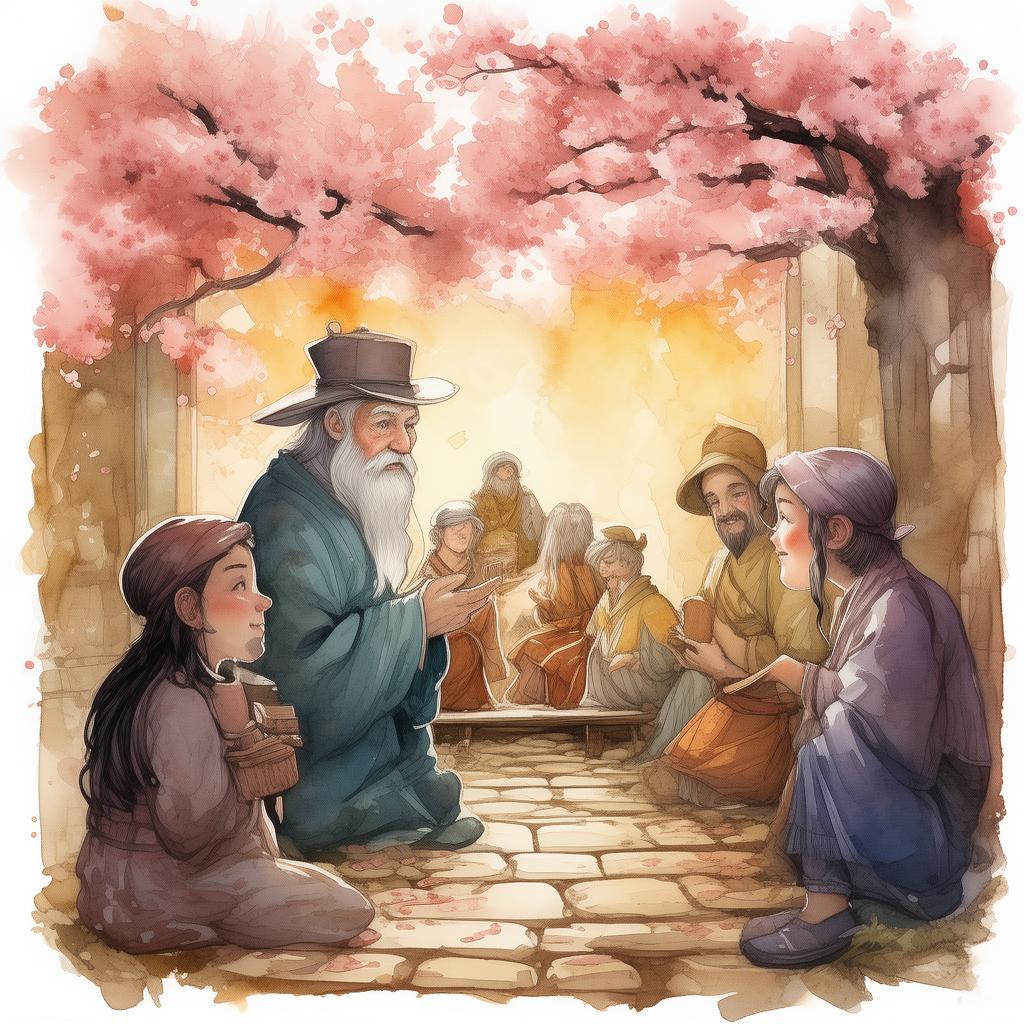
The tapestry's music had the power to change people, to alter their memories and their fates. Qing watched in horror as the people of Liyun became entranced by the tapestry, their lives and dreams entwined with the fabric of his creation. Some found solace in the music, while others were consumed by it, their lives unraveling like the threads of the tapestry.
One fateful night, a man named Ming, a former friend of Qing, appeared at his doorstep. His eyes were wild with desperation, his voice a broken whisper. "Qing, I need your help," he said. "The tapestry is controlling me. I can't stop."
Qing, filled with a mixture of guilt and fear, knew he had to act. He worked tirelessly to unravel the tapestry, hoping to free Ming and the others from its grasp. But as he cut the threads, the music grew louder, more desperate, and the tapestry began to unravel in his hands.
The final thread, a thread of pure gold, was the most difficult to cut. It was the thread that bound Qing to the tapestry, the thread of his own destiny. As he severed it, the tapestry began to glow, the music reaching a fever pitch.
In a final, desperate attempt to save Ming and the others, Qing cast the tapestry out of the window, watching as it spiraled into the night sky. The music faded, the tapestry's glow dimmed, and the town of Liyun returned to silence.
But Qing knew that the tapestry had not been destroyed. It had merely been hidden, a silent witness to the destruction it had wrought. And he knew, deep in his heart, that he had failed to control the power of his creation.
In the days that followed, Qing secluded himself in his workshop, a place once filled with the sounds of music and laughter, now a silent mausoleum to his failed dreams. He wove a new tapestry, one that would tell the story of his failure, his betrayal of the very harmony he sought to achieve.
As he worked, the music of the tapestry played on, a reminder of the enduring dreams that had once filled his heart. But now, instead of bringing joy, it brought a heavy weight of sorrow and regret.
And so, the tale of Qing and his tapestry, "The Weaver's Harmony," became a cautionary tale, a reminder that the power of creation is as great as the power of destruction, and that the true harmony lies not in the music, but in the hands of the creator.
✨ Original Statement ✨
All articles published on this website (including but not limited to text, images, videos, and other content) are original or authorized for reposting and are protected by relevant laws. Without the explicit written permission of this website, no individual or organization may copy, modify, repost, or use the content for commercial purposes.
If you need to quote or cooperate, please contact this site for authorization. We reserve the right to pursue legal responsibility for any unauthorized use.
Hereby declared.
